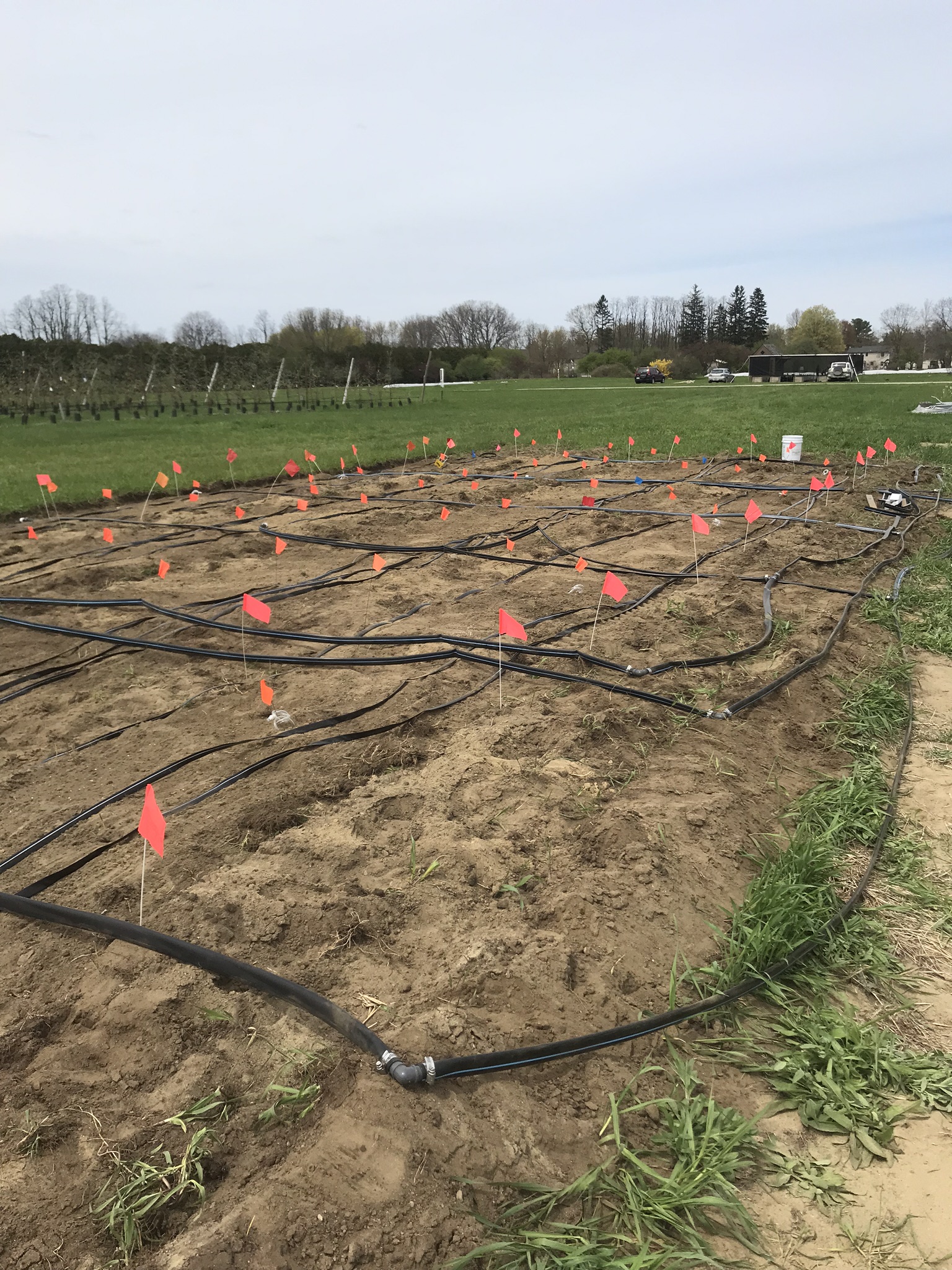Figure: Scott C. Merrill
Manuscripts
Awards: Non-monetary motivation for conservation behavior
In this study, we used a serious game approach to explore the effect of non-monetary conservation awards on participants’ agricultural management decisions in an online experiment. Our results show that study participants were highly motivated to implement cover crops on a year-by-year basis by the fictional Ecobadge award, particularly when award thresholds were set at low levels. This exploration suggests that non-monetary awards have high potential to serve as motivational tools to increase adoption of cover crops and potentially other agricultural conservation practices, likely as part of a suite of motivational strategies.
Collaborators: Rachel Schattman (UMaine), Scott Merrill (UVM), Eric Clark (UVM), Luke Trinity (University of Victoria)
Funding: USDA Northeast Climate Hub JVA#11242306-108, USDA NIFA AFRI #2017-68002-26728. and USDA National Institute of Food and Agriculture Hatch Project number ME0-1022424 through the Maine Agricultural & Forest Experiment Station.
Outreach, coaching, and payment for ecosystem services programs: Effects on soil health practices and regenerative agriculture in U.S. wheat systems
This project explores the role of privately-funded education and incentive programs, and the effects of these programs on farmer adoption of soil health and regenerative practices. Reduced tillage, cover cropping, livestock grazing cover crops, managed grazing, and diversified crop rotation all have the potential to benefit soil health, and provide ecosystem services both on and off the farm. In 2021, we will assess farmer perceptions of ecosystem service provision, as well as how these perceptions do or do not influence interest in payment for ecosystem service programs. The investigation includes a mail/internet survey of wheat farmers in Kansas and Oklahoma, in addition to a targeted series of interviews with farmers in the Cheney Watershed (Kansas). Our future findings will provide insights into farmer willingness to participate in novel ecosystem marketplaces, as well as the role of privately-supported outreach and education programs.
Collaborators: Rachel Schattman (University of Maine), Sara Kelemen (University of Maine), Andrea Basche (University of Nebraska Lincoln), Gabrielle Roesch-McNally (American Farmland Trust), Steve Rosenzweig (General Mills Inc)
Funding: General Mills Inc. Regenerative Agriculture Program
Manuscripts
Fact sheets
Water Use Efficiency in Northeast Vegetable Systems
Farmers of diversified vegetable in the Northeast often decide to turn irrigation water on and off based on how dry the soil feels to the touch. Our group is currently conducting field trials to determine the effects of this approach versus other approaches (i.e. soil moisture sensors and timers) on yield, quality, and nutrient leaching. Trials are ongoing in Vermont, and will begin in Maine in April, 2020. In addition, we are conducting focus groups with farmers throughout the Northeast to explore barriers to adoption of soil moisture sensors.
Collaborators: Rachel Schattman (UMaine), Joshua Faulkner (University of Vermont Extension), and Rebecca Maden (University of Vermont Extension), Haley Jean (UMaine)
Funding: Northeast Sustainable Agriculture Research and Education (NE-SARE) award #LNE19-391r




